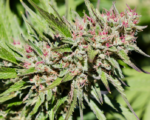From Stigma to Acceptance
Marijuana’s journey from being stigmatized to accepted as a medicinal tool has been remarkable. Historically, marijuana was associated with negative connotations and was heavily criminalized. Terms like “The Devil’s Weed” and “Satan’s Salad” reflected the societal disdain for the plant. However, as research into its medicinal properties expanded, attitudes began to shift.
One of the most significant changes came with the recognition of marijuana’s potential to alleviate opioid addiction. Opioids, both natural and synthetic, have been a major public health crisis, causing thousands of deaths annually. Studies have shown that marijuana can help reduce opioid use by providing an alternative for pain management and helping individuals manage withdrawal symptoms. This has led to a growing acceptance of marijuana as a legitimate medical treatment.
The transformation in public perception is also reflected in the legal landscape. Many states and countries have legalized marijuana for medical use, and some have even approved it for recreational use. This shift has opened up new avenues for research and development, further solidifying marijuana’s role in modern medicine.
The Science Behind Cannabis and Addiction
The scientific community has been exploring the relationship between cannabis and addiction, with promising results. A recent study conducted by researchers at the University of Southern California (USC) focused on the impact of cannabis on opioid use. The study, funded by the National Institute on Drug Abuse (NIDA), involved 30 participants who were recruited from a community site near a syringe exchange service and methadone clinic in Los Angeles.
The findings revealed that cannabis use helped participants in several ways. It assisted in maintaining opioid cessation, adhering to opioid use disorder treatment, and managing withdrawal symptoms. The study highlighted that marijuana’s accessibility made it a practical alternative for those struggling with opioid addiction. These results add to the growing body of evidence supporting the use of cannabis in addiction treatment.
Cannabis’s effectiveness in treating addiction is attributed to its interaction with the endocannabinoid system, which plays a role in regulating mood, pain, and appetite. By modulating this system, cannabis can help alleviate symptoms associated with withdrawal and reduce cravings. This makes it a valuable tool in the fight against addiction, offering a non-addictive and non-lethal alternative to opioids.
Future Prospects and Challenges
While the potential of marijuana in addiction treatment is promising, there are still challenges to overcome. One of the primary concerns is the need for more comprehensive research to fully understand the long-term effects and efficacy of cannabis in treating addiction. Regulatory barriers and the stigma associated with marijuana use have historically hindered research efforts, but the landscape is gradually changing.
As more states and countries legalize marijuana, opportunities for research and clinical trials are expanding. This will provide a clearer picture of how cannabis can be integrated into addiction treatment protocols. Additionally, there is a need for standardized dosing and quality control to ensure the safety and effectiveness of cannabis products used in medical settings.
The evolving legal framework also presents challenges and opportunities. Policymakers must balance the need for regulation with the potential benefits of cannabis in addiction treatment. Ensuring that patients have access to safe and effective cannabis products while preventing misuse is a delicate task that requires careful consideration.
The future of marijuana in addiction treatment looks promising, with the potential to transform how we approach substance misuse disorders. As research continues and public perception evolves, marijuana may become a cornerstone in the fight against addiction, offering hope and healing to countless individuals.
David Johnson is a respected writer known for his expertise in crafting compelling articles about cannabis. With a passion for exploring the intersection of cannabis, health, and wellness, he sheds light on the therapeutic properties and potential uses of this versatile plant. David’s in-depth analysis and thought-provoking commentary offer readers a deeper understanding of the evolving landscape of cannabis legislation, consumption methods, and industry trends.









